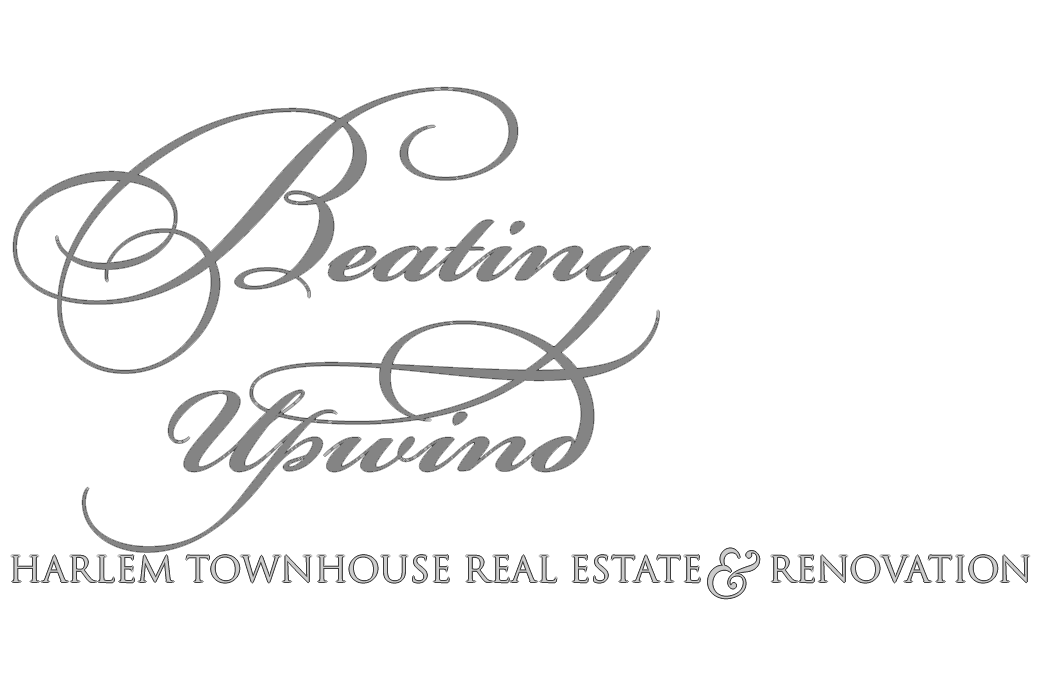The other day we went through an SRO-restricted townhouse which did not have a certificate of no harassment. In talking to the broker afterwards the broker insisted financing SROs without certificates of no harassment wasn’t a problem – that they did it all the time. She even cited two that were closed this year including one that was uninhabitable. When I pressed the broker on details the answer was vague but insistent (and even a little condescending).
So I called someone I know who’s a bit of an expert on financing townhouses and SROs and we talked through what might be happening. His take on it is exactly what I expected…
An naïve buyer shows up at one of the broker’s open houses, they’re told the house a legal 1 to 4 family, and hence mortgageable. [The paperwork I was given when I went through the SRO said it was a legal single family, but the broker had conveniently “forgotten” to put their logo on the document so misinformation couldn’t be traced back to them.] My mortgage expert and I suspect the following then happens… The buyer is gently guided through the process of buying the townhouse. The broker sends them to particular real estate lawyer, a particular architect, and a particular mortgage broker. The lawyer doesn’t tell the buyer the problems with the house or if he does he downplays them, the architect doesn’t mention potential problems with DOB, and the mortgage broker picks some unsuspecting bank in say the midwest who has no clue what an SRO is and what limitations that puts on the property. A 203(k) mortgage is then obtained, the sale is closed and everyone gets their commissions.
Unlike the loan we got, 203(k)s do not require approved plans at closing. After they’ve bought the place, the buyer goes to DOB to get their plans approved and is told they need a certificate of no harassment since their building is SRO restricted. The worst case scenario at that point is they have to wait 3 years to apply for the certificate, then construction takes another year. Meanwhile they have an uninhabitable building so they’re paying rent on top of say a $6,000 mortgage for a building they can’t use. They can’t afford the payments, so the bank forecloses and they lose the money they put into the building and their credit is ruined.
I’m not saying the worst case scenario is typical, but my mortgage expert friend has seen things like that happen. Banks who write a lot of rehab mortgages in the New York area insist on a certificate of no harassment to close the loan – they don’t want their loans going bad.
Unfortunately that’s typical of the dirty side of Harlem real estate and it doesn’t just hurt the buyers and the banks (and tax payers who’ve insured the loan). It hurts our neighborhoods since buildings don’t get fixed up – they sit there and deteriorate and reduce our quality of life and are a drag on our property values.
If you’re looking for a Harlem townhouse there are a few things you can do to protect yourself.
- Work with a buyer’s broker who has experience in the Harlem market – like me 😉
- Deal directly with a local bank who has lots of experience doing rehab loans in Harlem. If you can’t get the loan past them, you may be exposing yourself to risk.
- Get your own real estate lawyer and make sure they understand issues surrounding NYC SROs really well. Don’t do anything that your lawyer says you shouldn’t do.
- Check the SRO status even if the building is 1 to 4 family. Check with both DOB and HPD.
- Try to get approved plans before closing. At a minimum file the plans and see what DOB will require for approval.
- If at all possible, buy the building in cash. At least then if you have to hold the building while you wait for a C of NH, you won’t be making mortgage payments (and you can get a loan that doesn’t require PMI).
For an all cash buyer it can still make sense to buy an SROs without certificates of no harassment IF they buyer understands what they’re getting into and they’re prepared to wait for the certificate. OR if they’re able to bring the building to an acceptable point under “repairs and maintenance” and they can do those repairs all cash. In fact all cash buyers are the only people who should be buying these buildings.
There’s a lot of gray area between the worse case scenario and the best case scenario. The building could be rentable and the rents could cover the mortgage while the owner waits for the certificate. Or the building could be habitable and the owner could pay a handsome mortgage to live humbly while they wait for the certificate. But sometimes the worst really does happen. Rehabbing a townhouse is hard enough – you don’t need to add to the stress by picking the wrong building.
Every now and then I encounter a buyer who is cavalierly working directly with every listing broker they can find. They don’t seem to understand that parts of Harlem real estate are a still a bit like the wild west and bad things can happen to good people (even people who think they know what they’re doing). Things are much better than they were back in the day, but when you’re looking to buy in Harlem it helps to have a team of people watching your back.

Excellent post. Aint’ it the truth….